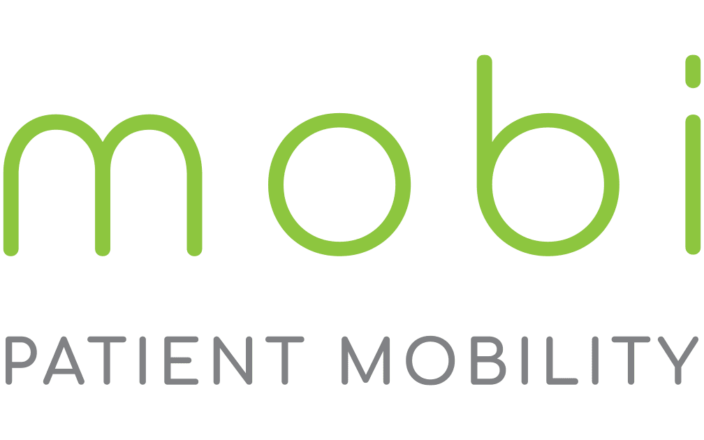Corona Update: SURGE CAPACITY SOLUTIONS – The mobi is a mobile headwall (equipment consolidator) that can be set up in any space that has an electrical outlet: next to a chair, a bed, a cot in a hallway, a cafeteria, or anywhere patients need to be located. Click here for more information.
Early Mobility
Key Articles

Patient Ambulation & Staff Safety
Early mobility (patient ambulation) protocols are first implemented, there is an increased cost in time for both the nursing and support staff.
Early Mobility & COVID-19 | Improving Patient Outcomes
The benefits of early mobilization for improving patient outcomes has been particularly well-documented and doctors are relying heavily on standard respiratory treatments (including early mobility) for the alleviation of COVID-19 symptoms
Reducing Hospital Costs and Saving Lives: Early Mobility and Covid19
Since the rise of COVID-19, hospitals have been placed under enormous strain, trying to balance patient care with staff safety and best-practice protocols with financial survival. Safe early patient mobilization requires a modest initial investment in staff time and resources that results in well-documented, clinically significant medical and financial benefits within weeks of implementation.
Helping Hospitals Reduce Costs
For hospitals, especially ICUs, reducing patient length of stay results in dramatic cost savings for both the individual patient and the hospital itself. Surveys done in both ICUs and across different units universally found that early mobilization dramatically contributed to improved patient turnover, improved patient outcomes, and millions of dollars in savings for the hospital.
Preparing for Hospital Overflow: UPDATE
Right now, hospitals in Spain and Italy have become hopelessly overwhelmed. Healthcare workers are releasing video clips that show coronavirus patients packed onto chairs and lying on floors, waiting for medical attention. Resources are so scarce that patients are lying on jackets and using their own bags as pillows. Healthcare facilities have fewer and fewer options for situating patients that desperately need access to multiple pieces of medical equipment, and as conditions in the United States worsen, these scenes may become all too common.
Preparing for Hospital Overflow
On January 30, 2020, the World Health Organization declared the outbreak of the coronavirus (“COVID-19”) a “public health emergency of international concern;” a few weeks later, the Center for Disease Control & Prevention announced that “at some point, widespread transmission of COVID-19 in the United States will occur,” warning that “public health and healthcare systems may become overloaded, with elevated rates of hospitalizations and deaths,” and that emergency medical services, healthcare providers, and hospitals “may be overwhelmed.”
Minimizing Hospital-Acquired Complications
Recovering from a major illness or injury can be a slow and difficult process. But when patients are bed-bound, simply being in the hospital can add further complications. In the United States alone, 600,000 patients acquire healthcare-associated infections every year, resulting in nearly 100,000 preventable fatalities (Vaughn 2020).
Known Benefits to Early Patient Mobility
The fact that immobility causes muscle stiffness and weakness is familiar to anyone who sits in a chair for too long, but can immobility actually cause permanent nerve damage? Recent studies reveal that immobility during hospital stays can cause damage to the peripheral nervous system, increase the likelihood and severity of delirium, and slow recovery for patients with neurological problems.
Emotional Benefits to Early Patient Mobility
One critical factor in determining a patient’s capacity for early mobility is their mental state, which nurses judge on a case-by-case basis. But it turns out that early mobility can actually stimulate patients’ mental well-being and improve their emotional well-being, which immediately improves the patients’ quality of life, while reducing the serious risk of delirium and decreasing overall recovery time.
Solutions for Early Patient Mobility
As far back as 1949, Dr. D.J. Leithauser wrote that: Ten years ago early ambulation was considered a “crackpot” idea. Today it is recognized and is rapidly approaching a “must” procedure following surgical operation. Seventy years later, Doctors, nurses, and administrators all agree that early patient mobility has tremendously beneficial outcomes.
Barriers to Patient Mobility
Most medical practitioners are keenly aware of the benefits of early mobility—it improves patient recovery times, lowers the risk of complications, and shortens overall length of stay. So why has it been so difficult to implement? The most common barriers to patient mobility can be grouped in four categories: equipment, patient availability, staff availability, and unit planning.
Mobility and Muscle Retention
Mobility is a key factor which advances healing during any hospitalization. In fact, the lack of mobility creates many problems that have for far too long been ignored by medical facilities.
What Customers Say
Testimonials
Contact Us Now to Talk to a
Mobi Ambulation Specialist
#502
Fort Collins, Co 80525
United States
mobi Patient Mobility
sales@livengoodmed.com









